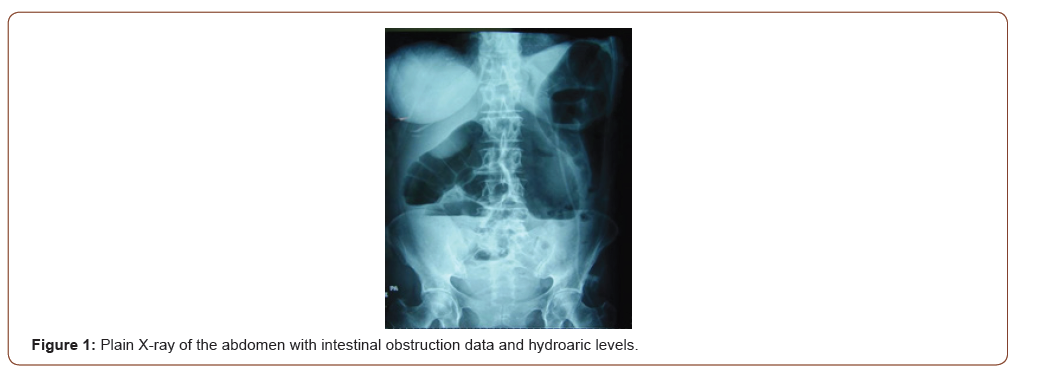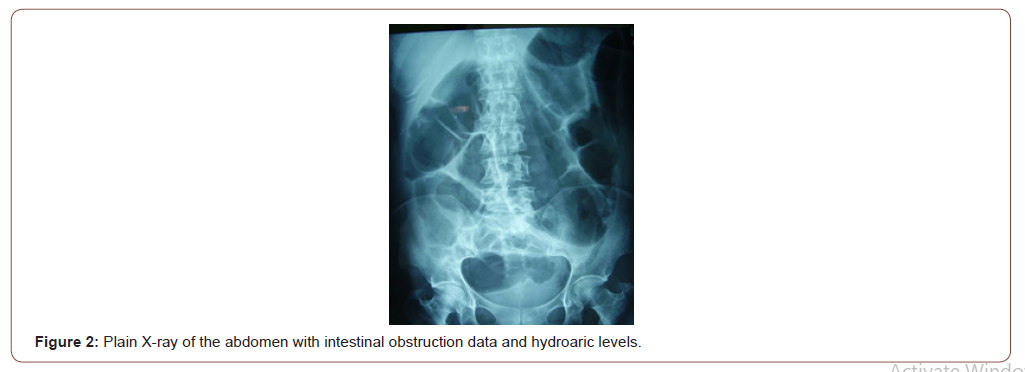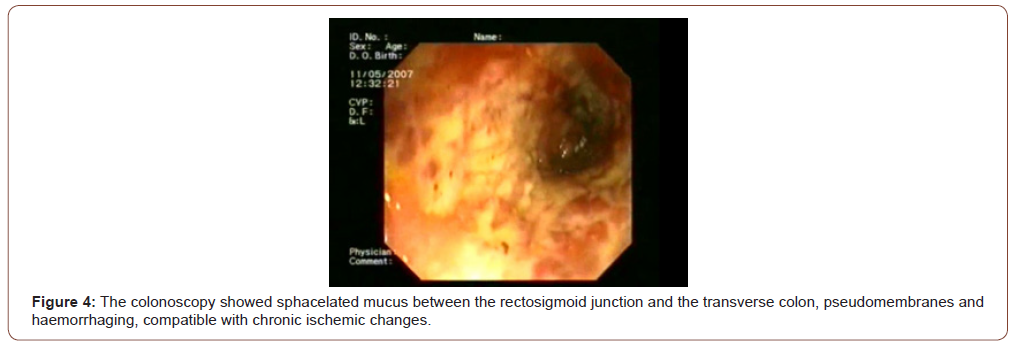Authored by Elvira Quintanilla Lázaro*,
Introduction
MELAS syndrome is a genetic mitochondrial myopathy affecting less than 0.05% of people, which occurs with encephalomyopathy, lactic acidosis and cerebral ischemia [1]. Although it has a variable phenotypic expression, the predominant digestive manifestations [2,3] are constipation and pseudo-obstruction which are infrequent and occasionally serious. We present a patient with MELAS syndrome and the digestive disorder chronic ischemic colitis following intestinal obstruction due to fecaloma.
Case Report
59 year-old female with suspected MELAS syndrome and a history of chronic constipation. Her aunt is also affected and the patient is genetically compatible. She had been diagnosed with sepsis and had intestinal obstruction for 4 days (Figure 1 & 2) The CT scan showed megacolon and a large fecaloma at the rectosigmoid junction (Figure 3). After the fecaloma was extracted, an emergency colonoscopy showed sphacelated mucus between the rectosigmoid junction and the transverse colon, pseudomembranes and haemorrhaging, with atony, no stenosis or neoplasia, compatible with chronic ischemic changes (Figure 4 & 5). The patient’s sepsis evolved sluggishly and the control colonoscopy evidenced stenosis of the sigmoid colon which exacerbated the adynamic symptoms requiring a subtotal colectomy with ileorectal anastomosis. The surgical specimen identified ischemic colitis and a muscle biopsy confirmed MELAS syndrome.





Discussion
The clinical characteristics of MELAS syndrome include muscle and neurological disorders and digestive disorders to a lesser extent. There are few documented cases with severe intestinal pathologies [4], in which one case of MELAS syndrome was identified, requiring surgical resectioning due to chronic constipation [5]. Ischemic colitis caused by vascularisation disorders of the colon may be secondary to obstructive phenomena caused by neoplasia, volvuli, or more infrequently, fecalomas. In this case, the rapid evolution and severity of the symptoms may have been caused by the underlying pathology, the main alteration of which occurs in the cellular respiratory chain due to mitochondrial enzymatic affectation.
To read more about this article...Open access Journal of Gastroenterology & Hepatology
Please follow the URL to access more information about this article
To know more about our Journals...Iris Publishers





No comments:
Post a Comment